- admin
- Last Modified: 6 months ago
- One Comment
Understanding the laws surrounding knives, swords, and other weapons in the UK is crucial. This guide aims to provide an extensive, concise, and accurate overview of the current legislation to ensure that you stay on the right side of the law.
We will continually update this guide as new laws and information becomes available to us.
Knife Laws
Age Restrictions
It is illegal to sell a knife, blade, or any sharp-pointed article to anyone under 18 years old. This law applies to all retailers, including online sales.
Exceptions include folding pocket knives with a blade length of less than 3 inches, which can be purchased by individuals aged 16 and above.
Possession and Carrying
Carrying a knife in public without a valid reason is prohibited. Valid reasons can include using the knife for work, as part of a national costume, or for religious ceremonies.
Folding pocket knives with a blade length of less than 3 inches are generally exempt from this rule, provided they do not have a locking blade.
Law enforcement officers have the right to stop and search individuals if they have reasonable grounds to suspect they are carrying a knife illegally.
Using any knife in a threatening or dangerous manner is illegal and can result in a prison sentence, even if the knife is legal to carry.
Claiming that a knife is carried for self-defence is not considered a valid reason and can result in legal penalties.
Blade and Sword Laws
Age Restrictions
Selling, hiring, or gifting swords with blades over 50 cm to those under 18 is prohibited.
Possession and Carrying
Carrying a blade or sword in public requires a valid reason, similar to the laws regarding knives.
Samurai Swords and Katanas
Curved blades over 50 cm, such as samurai swords and katanas, face restrictions. However, traditionally crafted swords made by hand are exempt from these restrictions. These traditional swords are recognized for their cultural and historical significance, and their craftsmanship is valued.
Legal Ownership and Display
Swords can be legally owned and displayed in private residences.
Carrying a sword in public requires a valid reason, such as transportation to and from an event or for use in a re-enactment or martial arts training.
Firearms
The United Kingdom is known for having some of the strictest gun control laws in the world, ensuring a high level of public safety. These laws are designed to regulate the ownership, use, and possession of firearms, with a strong emphasis on preventing unauthorized access and misuse.
Imitation and BB Guns
Imitation firearms, including BB guns, must be brightly colored to distinguish them from real firearms. This regulation is in place to prevent confusion and potential dangerous situations. Possession of non-colored BB guns or imitation firearms can lead to legal consequences, especially if used in a threatening manner.
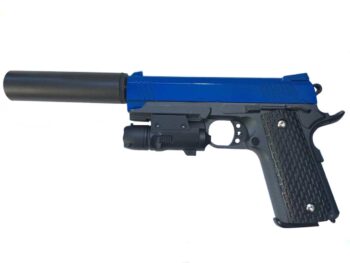
Air Rifles and Air Pistols
Air rifles and air pistols are subject to less stringent regulations. Individuals over the age of 18 can purchase and own air rifles and air pistols. Those between 14 and 18 years of age can use them but cannot purchase them, and they must be supervised by an adult when using them. The power limit for air rifles is set at 12 ft/lb, and for air pistols, it is 6 ft/lb. Exceeding these limits requires a FAC.
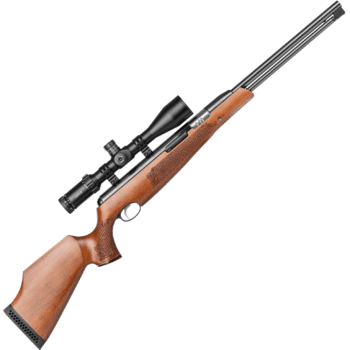
Long Guns: Shotguns and Rifles
Ownership of shotguns and rifles is allowed under strict conditions. Applicants must obtain a Shotgun Certificate (SGC) or a Firearm Certificate (FAC) from the police, demonstrating a good reason for ownership, secure storage facilities, and a background free of criminal activity and mental health issues. The certification process also includes interviews and references. Shotguns are generally limited to a capacity of three cartridges, and rifles are subject to caliber and type restrictions.
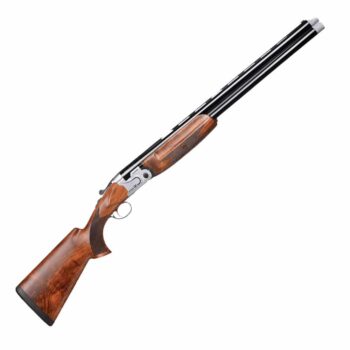
Handguns
In the UK, handguns are largely prohibited for the general public. The Firearms (Amendment) Act 1997 was introduced in response to the Dunblane massacre, resulting in a near-total ban on the private ownership of handguns. There are very limited exceptions, such as for antique collectors, professional sport shooters, and certain professions that require the use of firearms. Individuals who wish to own a handgun for these purposes must undergo a rigorous application process, including background checks, secure storage inspections, and providing a valid reason for ownership.
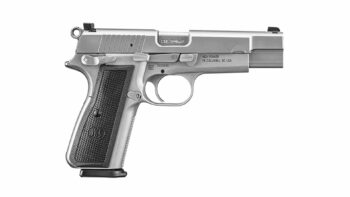
Automatic and Semi-Automatic Weapons
Automatic weapons, including machine guns and assault rifles, are prohibited for civilian ownership. Semi-automatic rifles are allowed but are restricted to .22 caliber and are subject to the same certification process as other firearms. High-capacity magazines are also prohibited.
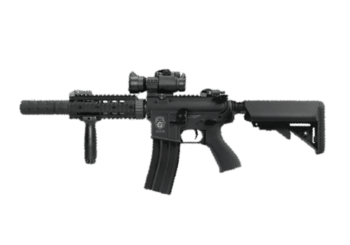
Licensing and Storage
All firearm owners are required to have the appropriate licenses and ensure that their firearms are stored securely. The police have the right to inspect storage facilities to ensure compliance. Failure to securely store firearms can result in the revocation of licenses and legal action.
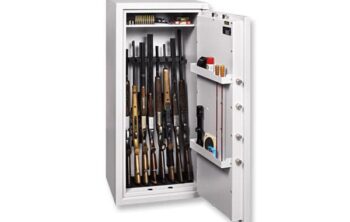
Understanding Self-Defense
Self-defense is a critical aspect of personal safety, and understanding the legal boundaries in the UK is essential. The law permits the use of ‘reasonable force’ to protect oneself or others, prevent a crime, or assist in the lawful arrest of offenders. However, what constitutes ‘reasonable force’ depends on the circumstances and can be subject to legal interpretation.
Defining 'Reasonable Force'
‘Reasonable force’ is a term that is open to interpretation, but it generally means using no more force than is necessary in the circumstances as you believe them to be. It is important to act proportionately and to not use excessive force. For example, if you are threatened without a weapon, it may be deemed excessive to use a weapon in response.
Use of Weapons in Self-Défense
Introducing a weapon into a self-defense situation can escalate the situation and may be considered excessive force, especially if the attacker is unarmed. The law does not provide a clear-cut allowance for using weapons in self-defense, and each case is judged on its own merits. If you use a weapon, you must be able to justify that you had no other option and that you used the weapon in a reasonable manner.
Preemptive Strikes
The law in the UK also recognizes the concept of preemptive strikes as a form of self-defense. If you genuinely believe that an attack is imminent and you strike first to defend yourself, this can be considered self-defense. However, the force you use must still be reasonable and proportionate to the threat.
Duty to Retreat
Unlike some jurisdictions, the UK does not have a ‘stand your ground’ law. This means that if you can safely retreat from a situation, you are expected to do so rather than confront the attacker. Using force, especially lethal force, is considered a last resort.
Legal Consequences
If you have used force in self-defense, you may still be arrested and questioned by the police. It is crucial to seek legal advice in such situations. If your case goes to court, it will be up to the jury to decide whether the force used was reasonable in the circumstances.
Importance of Training
Understanding your legal rights and responsibilities is crucial, but so is having the physical skills to defend yourself if necessary. Self-defense training can provide you with the knowledge and skills to protect yourself and others, while also helping you understand the legal boundaries of self-defense.
Banned Weapons
Weapons are typically banned due to their potential for misuse, their inherent danger, or their association with violent incidents. The UK’s stringent weapon regulations prioritize public safety. Here’s an in-depth look at some of the banned items and the reasoning behind their prohibition:
Flick Knives (Switchblades)
Characteristics: A blade stored inside the handle springs out when activated by a button or switch.
Why Banned: Their concealed nature and one-handed operation make them ideal for illicit activities, increasing the risk of surprise attacks.
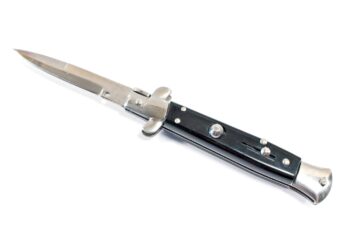
Butterfly Knives (Balisong)
Characteristics: Consist of a blade sandwiched between two rotating handles.
Why Banned: Their covert appearance when closed and the potential for swift deployment make them a public safety concern. Additionally, they have been popularly associated with street gangs and criminal activities.
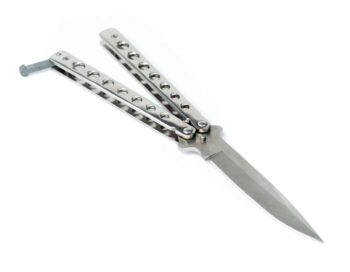
Disguised Knives
Characteristics: Knives concealed within everyday objects like pens, belts, or lipsticks.
Why Banned: Their deceptive appearance makes them unpredictable threats, especially in public spaces where they can be used for stealth attacks.
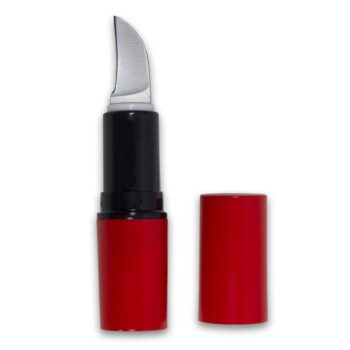
Gravity Knives
Characteristics: The blade is released from the handle using the force of gravity or a flicking action.
Why Banned: Due to their ease of one-handed operation and quick blade deployment, they’re seen as a public safety hazard.
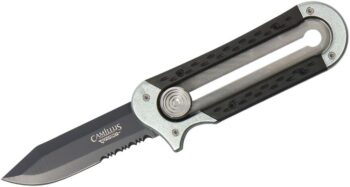
Sword-sticks
Characteristics: A blade or sword hidden within what appears to be a walking cane or stick.
Why Banned: Their dual nature (being both a walking aid and a weapon) can lead to inadvertent harm, and their concealed blade can be used for surprise attacks.
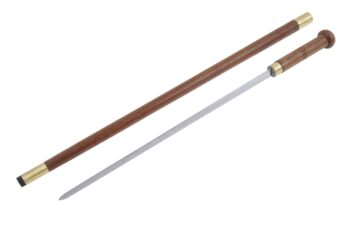
Zombie Knives
Characteristics: Often feature aggressive designs with violent imagery or slogans. May combine features like sharp edges, serrations, and spikes.
Why Banned: Their design glamorizes violence, and they have no practical use beyond causing harm.
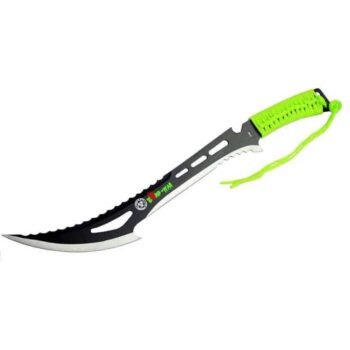
Knuckle Dusters
Characteristics: Metal or hard plastic designed to fit over knuckles.
Why Banned: Specifically designed to amplify the force of punches, increasing the risk of grievous bodily harm during physical altercations.
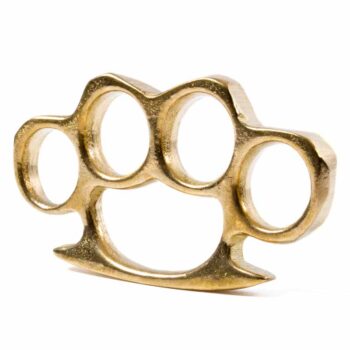
Push Daggers
Characteristics: Short-bladed daggers with a “T” handle, designed to be held in a fist with the blade protruding between fingers.
Why Banned: Their compact design and ease of concealment, combined with their potential for causing severe injuries, make them a public safety concern.
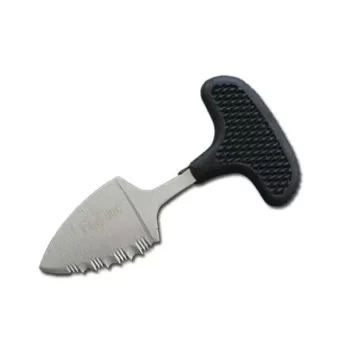
Blowpipes/Blowguns
Characteristics: Tubes from which darts or projectiles are blown.
Why Banned: Historically used with poisoned darts in some cultures, they can be weaponized for silent attacks.
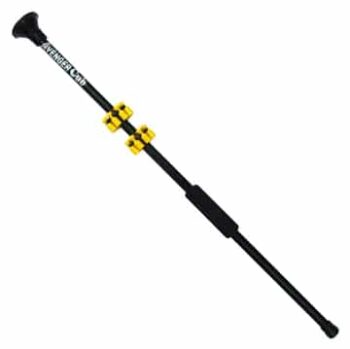
Death Star (Throwing Star)
Characteristics: Flat metal pieces, sharpened on one or more edges, and designed to be thrown.
Why Banned: Commonly associated with stealth attacks and can cause significant injuries due to their sharp edges.
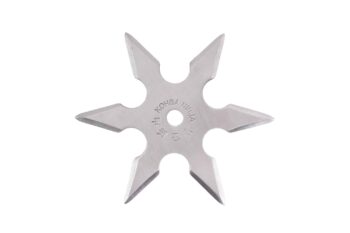
Importing Weapons
The UK Border Force, in collaboration with other government departments and agencies, enforces strict controls on the import of firearms, ammunition, and offensive weapons into the UK.
Knives, Swords, and Other Offensive Weapons
The UK has a list of offensive weapons that are either banned or restricted from being imported. This list includes, but is not limited to:
Butterfly Knives, Disguised Knives, Flick & Gravity Knives and more, see more in the ‘Banned Weapons’ section above.
Firearms
To import firearms and ammunition into the UK, individuals and businesses must comply with stringent regulations. This includes obtaining the appropriate licenses and permissions from various authorities:
- Department for Business and Trade (DBT): An import license or certificate from the DBT is required for ammunition and live firearms.
- Home Office Permission: For handguns, pistols, revolvers, and automatic or semi-automatic firearms, explicit permission from the Home Office is necessary.
- Regional Police Authority Permission: For other types of firearms, permission is needed from the regional police authority in the UK where the importer is located or intends to use the firearm.
Deactivated firearms are subject to their own set of rules. They must be accompanied by a deactivation certificate compliant with EU standards, and an import license from the DBT is still required.
Exceptions for Restricted Offensive Weapons
There are specific circumstances under which restricted offensive weapons can be imported:
- Museums, Galleries, and Universities: For purposes of display, research, or interpretation of historical, artistic, or scientific interest. These imports may also qualify for relief from duty and VAT.
- HM Forces and Visiting Forces: For official use by military personnel.
- Police Forces and Prison Service: Direct imports for official use, including batons and truncheons.
- Commercial Imports: For supply to the police or prison service or for trade samples, with evidence such as contracts required.
- Theatrical, Film, and Television Production: For use in performances, rehearsals, or production, provided they are part of the props.
- Religious Ceremonies and Martial Arts: Swords with a curved blade of 50cm or more may be imported for use in religious ceremonies or martial arts, provided they meet certain criteria.
Legal Repercussions
Adhering to the UK’s knife, blade, sword, and weapon laws is crucial for maintaining public safety. Individuals must ensure they have a valid reason for carrying any weapon in public and be aware of the types of weapons that are completely banned. Ignorance of the law is not considered a valid defence, so it is essential to be informed and compliant.
Penalties for weapon offenses vary depending on the severity of the offense but can include fines, community orders, and imprisonment.
In cases of carrying a knife or weapon in public without good reason, individuals can face up to 4 years in prison.
Periodic amnesties are held, allowing individuals to surrender illegal weapons to the police without facing prosecution.
Imported Goods
The UK Border Force actively monitors and controls the import of such items. Non-compliance with the legal requirements can lead to severe consequences, including:
- Forfeiture and Seizure: Illegal items will be confiscated by the Border Force.
- Arrest and Prosecution: Individuals may face arrest and charges for illegal importation and possession, with potential imprisonment of up to 10 years.
For those looking to import such items, it is crucial to understand the legal framework and ensure all necessary documentation and permissions are in place. The final decision on whether an import is allowed lies with HM Revenue and Customs (HMRC), who will inspect the items upon entry into the UK.
Resources
Here is a list of resources where you can find official legislation, local regulations, and personal legal advice, ensuring they have access to the most accurate and up-to-date information.
- UK Government’s Official Website: For official legislation and guidance.
- Your local police force’s website: For local regulations and amnesty information.
- Legal advice services: For personal legal advice.



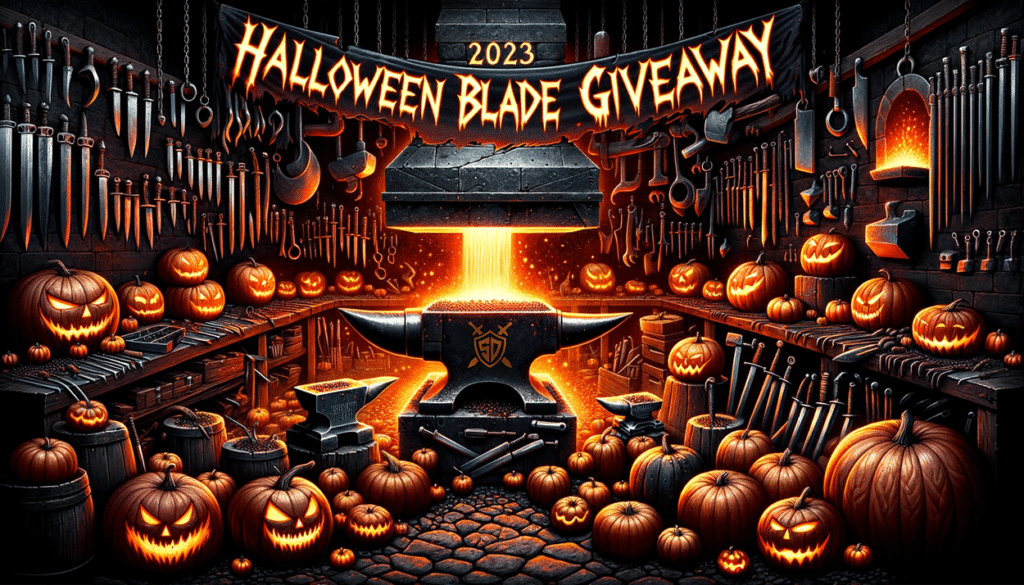



1 Comment
Very clear and sound advice on the restrictions surrounding the carrying and/or storage of items considered to be weapons.